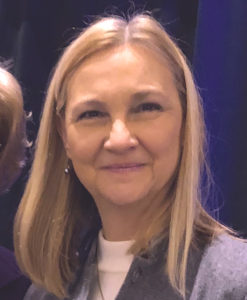
PROVINCETOWN — There are times when consensus is impossible, according to Robin Leal Craver, who is one of three finalists for the town manager’s position.
In her case, one of those times was earlier this year when she approved a host community agreement for the largest marijuana cultivation and processing facility in the country, greatly angering neighbors and resulting in a vote on town meeting floor to reduce Craver’s salary to $1.
The vote was narrowly reversed minutes later, but the controversy would end Craver’s 13-year run as town administrator of Charlton, a Worcester suburb. On Oct. 1, just a month or so before Craver became a finalist in Provincetown, the Charlton selectmen bought her out of her contract 22 months early for $400,000.
The separation was not amicable. But Rick Murray, chair of the town manager search committee, said his group believes her side of the story, which was backed by consultant Bernard Lynch’s research.
“Stuff happens when you work for a municipality and this is nothing surprising to us and everyone was totally up front and honest,” Murray said.
Craver got a very significant offer to leave, Murray added. “She was smart, shrewd,” he said. “For that town to give her that amount of money, it showed some culpability on the part of the town.”
Another finalist, Maria Broadbent, town manager of Berwyn Heights, Md., was fired from her previous job, director of the office of environmental policy for the city of Annapolis, which she held from 2016 to 2018.
That case too was no surprise, Murray said. Public jobs are subject to controversy and town managers, these days, “have a shelf life of six years,” Murray said. “Keith Bergman [Provincetown town manager from 1990 to 2007] was the exception, not the rule.”

‘I had selectmen support’
Craver served for 13 years as municipal leader of Charlton, a town of about 13,000 residents. She negotiated a water contamination settlement of $30 million with ExxonMobil. And 2018 was a great year for her, with high marks from the selectmen and a 13-percent raise. The school administration had won a hard-fought override and citizens were calling for more economic development, said Craver by phone.
A 100-acre apple orchard that had been for sale on Route 20 for a while drew interest from a developer, who wanted to do marijuana manufacturing there. Dr. Jeffrey Goldstein, CEO of Valley Green Grow, proposed to construct the largest grow facility in the U.S., according to news reports.
“We didn’t anticipate the neighborhood reaction,” Craver said. “We could have done better. We could have had a public meeting earlier.”
She and the selectmen conducted private negotiations; the board then approved, unanimously and in public, a host community agreement.
Neighbors were horrified. They were used to living next to an apple orchard and now would be next to a one-to-three-million-square-foot operation, about the size of Gillette Stadium, according to MassLive.com. It would create 300 jobs and bring in annual fees of more than $2 million — in addition to property taxes, Valley Green Grow claimed.
The town of Charlton had voted to legalize marijuana. And the selectmen had just approved a community host agreement for another pot retailer without controversy, Craver said. That’s why they were not prepared for the neighbors’ reaction.
“So we pulled back,” she said.
The selectmen scheduled two public meetings and promised to re-vote on a host community agreement after hearing from the citizens.
Each meeting drew about 400 people, Craver said.
Afterward, the selectmen voted again and approved the host agreement, 4-1 this time. The citizens continued to put up a spirited fight.
Time to Say Goodbye
In May 2019 the Charlton town meeting voted to reduce Craver’s salary to $1 and even though the vote was reversed soon after, she decided her time was up.
“I think the selectmen appreciated the work I did for the town of Charlton and that was reflected in the severance package I received,” she said. “We also agreed I’d stay on for an additional three months to finish up projects before leaving.”
The lesson she learned was to try to anticipate controversy early.
But otherwise, “I think we did everything right,” she said. “Once we heard people didn’t get the information they wanted, we backed up. I’m disappointed we were not able to come to some understanding with the organized group of residents. I just realized that sometimes having consensus is impossible.”
In the case of Maria Broadbent, who was fired from her position of two years as head of the Annapolis office of environmental policy in 2018, she too faced years of opposition to the development of a 35-acre continuing care community called Crystal Spring. She had worked on the environmental review of the development for six years while holding various positions in city government. Her review spanned the tenure of two mayors, she said. When a third mayor, Gavin Buckley, came in, he too faced pressure from the same group of people who, she said, “wanted the development stopped and they were trying to push me to do something that the law would not allow.”
Buckley let her go under pressure, she said. “It was his prerogative and I respected it,” said Broadbent. “I left with my integrity and I’m OK with that.”
Craver, Broadbent, and the third candidate for Provincetown town manager, Diana Prideaux-Brune of Cambridge, will be interviewed by the select board in open session on Monday, Dec. 16 after meeting the public that afternoon from 1 to 3 at the Provincetown Commons.



